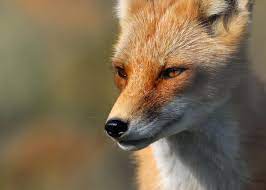It is now three years since I started a plant-based diet. I had been prompted to take that step after hearing that my nephew George had set out on the vegan road just a few months earlier.
To mark the occasion I met up with George to hear more about his vegan journey.
It is interesting to see that we have arrived at this from different directions but have a common appreciation of a plant-based life and values.
This post is headed with a photo of one of those beautiful creatures that George mentions that invites our respect and protection …
Neither of us live in a vegan bubble and have friends and family who consume meat and dairy as well as plant-based foods, but over the years both of us have become more convinced that a plant-based life is the right way to go.
Why did you become a vegan?
Mainly after seeing documentaries such as Cowspiracy [1], What The Health [2], and talks by Gary Yourofsky [3a], [3b] such as The Best Speech You Will Ever Hear [3c]. These were real eye-openers.
I first went vegetarian for health and environmental reasons, however it was when I gave up meat that the way I viewed animals completely changed. I used to merely see them as a product or as a means to an end for my own personal pleasure. However I now see animals as individuals, each with their own thoughts and feelings that have their own wishes and desires and do not deserve to be used against their will.
What was your diet like before you became a vegan?
My parents encouraged a nutritious diet and my mother and sisters were vegans. But I ate a lot of sausages, beans and chips because I was an extremely fussy kid. I never really ate any vegetables apart from carrots and I just never saw the point of eating healthily. I ate some fruit like raspberries and bananas occasionally but I never realised the benefits of eating these foods at the time. Changing to a vegan diet was a big step. But I felt a lot better when I did.
Is veganism more than food?
Definitely. It is a lifestyle and ethical choice. Animal welfare is very important. There are many ways humans exploit animals other than the food industry. Some other big issues include horse racing, zoos, circuses, experiments and using animals for clothing. I believe it is having the ethical viewpoint of treating animals as individuals with thoughts and feelings with their own ends. Instead of treating them as objects for which humans can do whatever they want with. It is to say “no” to any industry that exploits animals and harms them.
You’ve recently been on a Vegan Camp
Yes, The Vegan Campout at Newark [4], attended by about 10,000 people. There was a wide range of vegan food to try, great music, seminars, teaching sessions. Great to meet a lot of like minded people. It was an absolutely wonderful and uplifting experience to have so many vegans in one place. It truly felt like I am part of something bigger than myself and thousands of others are fighting for the same cause.
How do you talk about veganism?
Well I certainly think veganism is the way forward. I like to debate the issues and I’m very happy to talk about it, but I’m not going to annoy my friends; I won’t push it if they’re not interested.
There is a very important balance to get right when educating people about veganism. There is no point in criticising food choices because it is not anyone’s fault they were brought up eating non-vegan products. However, saying nothing does not achieve anything either. I will usually ask them polite questions about their opinions on vegansim and you will find that most people will have positive associations with it and think it is great but are finding it difficult to change.
You should encourage and support their journey and give them advice on how you became vegan. If you find someone who is perhaps not as positive about veganism then politely debate the subject with them giving your point of view however it is important to stay calm and don’t make it become a heated argument (If it does I understand – I’ve been there).
The more of an argument it becomes, the less this person will like you and it is virtually impossible to persuade people to do things when they don’t like you. If it is about to become a heated argument then try and change the subject.
Where do you get information from?
Vegan friends and groups in Southampton. Viva [5] : they have a website and monthly podcast. Michael Gregor (NutritionFacts.org) [6a] – he’s put out some YouTube presentations [6b], written books [6c], given TED talks [6d]. Earthling Ed [7]. Documentaries are very useful. If you want to look at specific studies then PubMed [8] is a good resource.
Thank you George
References
[1] https://www.cowspiracy.com
[2] https://www.whatthehealthfilm.com
[3a] https://www.youtube.com/channel/UCLW0TEV3YEt-J56pYZm-TgA
[3b] https://www.adaptt.org
[3c] https://youtu.be/U5hGQDLprA8?start=0
[4] https://www.vegancampout.co.uk
[5] https://viva.org.uk
[6a] https://nutritionfacts.org
[6b] https://www.youtube.com/@NutritionFactsOrg/videos
[6c] https://nutritionfacts.org/books
[6d] https://www.youtube.com/watch?v=k8hgfXmZSHE
[7] https://www.earthlinged.org
[8] https://pubmed.ncbi.nlm.nih.gov/?term=vegan+
